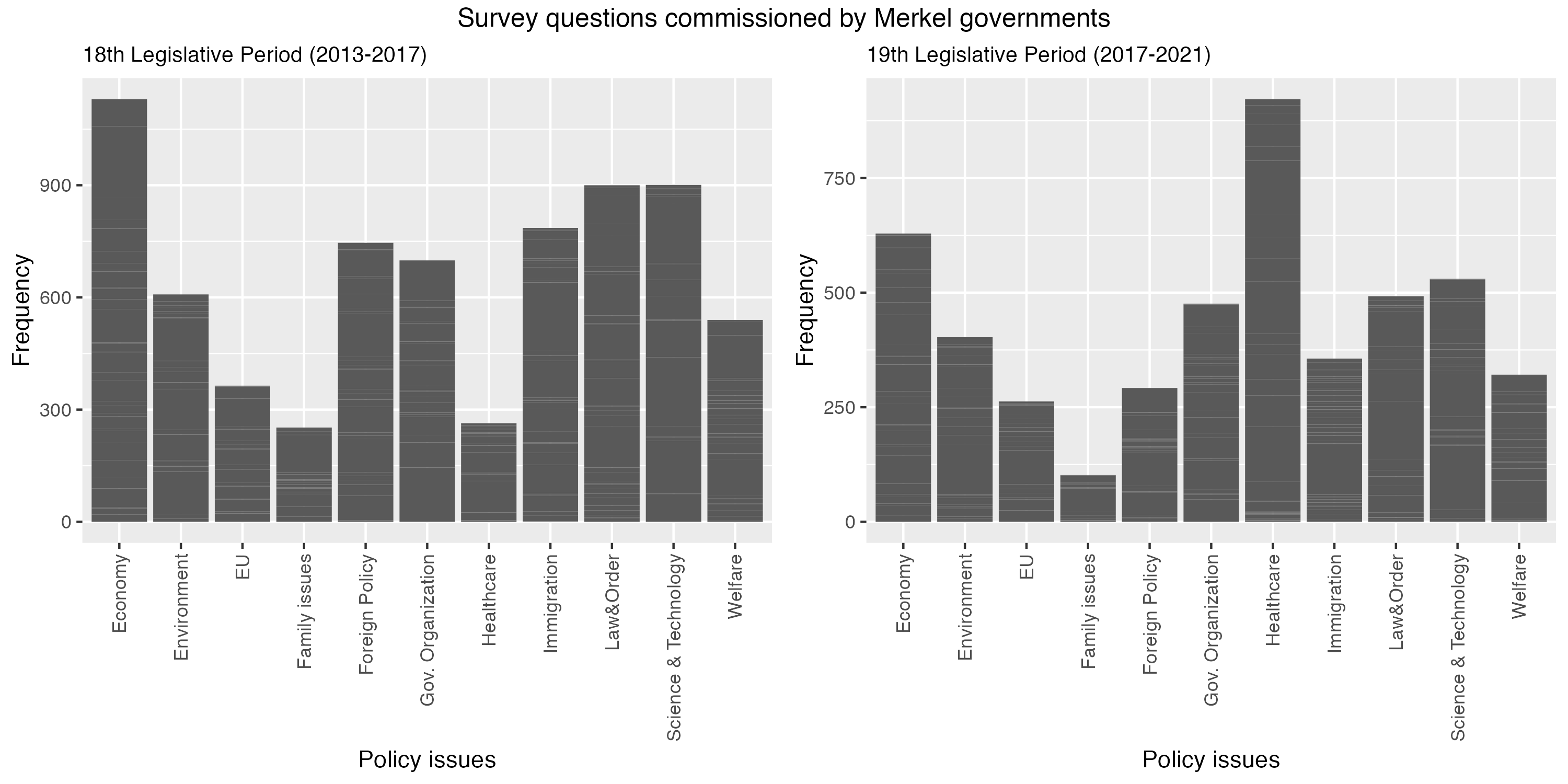When and why do governments want to learn about citizens’ preferences? In our new EJPRjournal article Anja Durovic and I open the black box of government polling by exploring this question using new data from Germany (2013-2021).
Why study government polls? If we consider that public opinion in its surveyed form, is a social construction, it becomes necessary to begin by focusing on governments’ polling activity. We thus consider governments as actors in production of public opinion not only consumers.
We study government polls as the DV, using an innovative design to analyze factors influencing polling intensity across the electoral cycle. We also explore whether poll topics align more with government priorities or public concerns.

- A first important finding concerns the impact of issue ownership and the observation that the German government asks fewer questions on issues the CDU/CSU “owns”.
- Second, we find that survey questions often follow government priorities, but issue salience also matters. The balance shifts over the electoral cycle: after elections, governments focus on their policies, while closer to elections, they prioritize public concerns.
- German government’s varied polling throughout the electoral cycle suggests that it uses this tool in a strategic way, responding to different incentives. This underlines the importance of understanding governments as actors in, and not just consumers of, public opinion polls
Our next papers (as part of ANR research project Cospo) will deal with the more qualitative aspect of government polling: the question as to which specific policy issues are selected by government polls, when and why? And will extend the research to a Franco-German comparison.
We will present ” Agenda setting through government polls: what policy issues are covered in commissioned surveys and why ?” at the DVPW Congress in Göttingen on Friday 27th of September 2024!